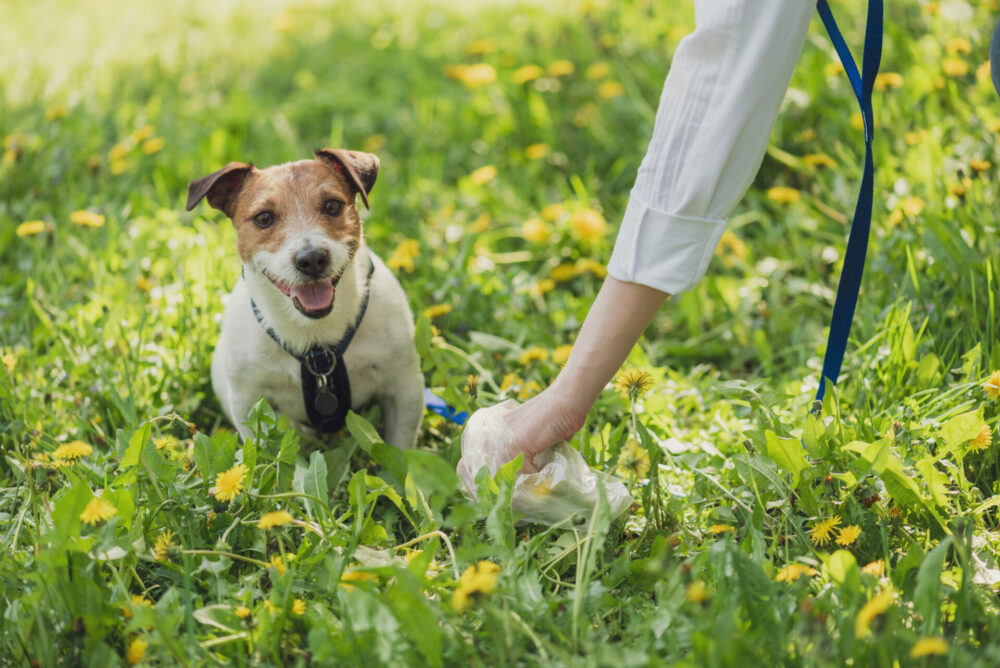
Dog waste poses significant challenges for public health and the environment when not handled correctly. Uncollected dog poop can spread dangerous bacteria and parasites that affect humans, pets, and local ecosystems. This article explains the health risks of improperly managed pet waste, examines its impact on the environment, and outlines safe disposal methods that benefit the entire community.
The Health Risks of Dog Waste
Dog feces carry a variety of microorganisms that can cause infections and other health problems. Bacteria like E. coli and Salmonella are common in pet waste and have the potential to trigger gastrointestinal infections in people who accidentally come into contact with contaminated soil or water. Parasites such as roundworms and hookworms are also present in dog poop and can lead to serious complications, especially in young children and individuals with weakened immune systems.
When dog waste is left on sidewalks, in parks, or in residential areas, it increases the risk of transmission of these pathogens. Children playing in contaminated areas or pets encountering waste during outdoor activities may unknowingly be exposed to these harmful agents. Studies have shown that areas with a high concentration of improperly managed dog waste tend to report more frequent cases of minor infections and skin irritations among residents.
Environmental Impacts of Untreated Dog Waste
The effects of improper dog waste management extend beyond immediate health concerns. When rain washes away uncollected dog poop, harmful bacteria and parasites travel into storm drains, eventually reaching local streams, lakes, and rivers. This contamination of water bodies not only harms aquatic life but also diminishes the safety of recreational water for swimming and fishing.
Soil contamination is another concern associated with untreated dog waste. The microorganisms present in feces can remain active in the soil for extended periods. This prolonged presence can hinder plant growth and contribute to the degradation of green spaces in urban and suburban neighborhoods. As a result, local ecosystems suffer, and communities may face increased expenses in environmental cleanup and water treatment.
Safe Disposal Practices for Dog Waste
Pet owners play a key role in protecting community health and the environment by adopting proper dog waste disposal methods. Using biodegradable waste bags designed by dog poop service Pittsburgh specifically for pet waste collection is an effective way to ensure that contaminants are safely contained. Wearing gloves during collection minimizes direct exposure to pathogens, while sealing the waste securely in a bag prevents accidental leaks.
Once the waste is collected, it should be disposed of in designated trash bins, according to local municipal guidelines, or through dog poop cleaning services Pittsburgh PA. Regularly cleaning public spaces and maintaining proper sanitation routines in residential areas also help reduce the risk of contamination. Informative programs and community outreach initiatives can increase public awareness about the importance of responsible pet waste management, leading to healthier and cleaner neighborhoods.
Professional Solutions for Effective Waste Management
In regions where the problem is more widespread, professional teams offer targeted treatments that disinfect surfaces and reduce microbial presence. Areas that have integrated these expert services have seen a notable decrease in community health issues linked to pet waste. In addition, some property managers choose services like dog poop removal Pittsburgh to maintain hygienic conditions in shared spaces.
Enhancing Community Health and Safety
Clean public areas contribute to a higher quality of life by promoting outdoor activities and community engagement. When dog waste is managed effectively, parks, sidewalks, and recreational spaces remain safe and inviting for residents. A commitment to responsible waste disposal not only minimizes the spread of infections but also protects local water supplies and soil quality.
Community leaders, in partnership with local authorities, can encourage pet owners to adopt better waste management practices by providing resources and organizing cleanup initiatives. In several cities, municipal programs support specialized services such as dog poop pickup service Pittsburgh to ensure even hard-to-reach areas are kept clean. Such coordinated efforts help maintain a healthy living environment and reduce the overall incidence of waste-related illnesses.
All in all, improper management of dog waste is a significant health hazard that affects both humans and the environment. Dog poop carries harmful bacteria and parasites that can lead to gastrointestinal and other infections, while untreated waste contributes to environmental degradation by contaminating soil and water. Pet owners can mitigate these risks by following safe disposal practices, including the use of biodegradable waste bags and personal protective gear during cleanup. Professional cleaning services provide additional support by ensuring that both visible waste and residual contaminants are removed and sanitized effectively.
By adopting responsible waste management methods and utilizing professional assistance when necessary, communities can protect public health and preserve natural resources. Each effort, from individual cleanups to coordinated municipal initiatives, plays a part in creating safer, cleaner neighborhoods. Through collective action, residents, pet owners, and local authorities can significantly reduce the dangers associated with improperly managed dog waste, ensuring a healthier environment for everyone.
